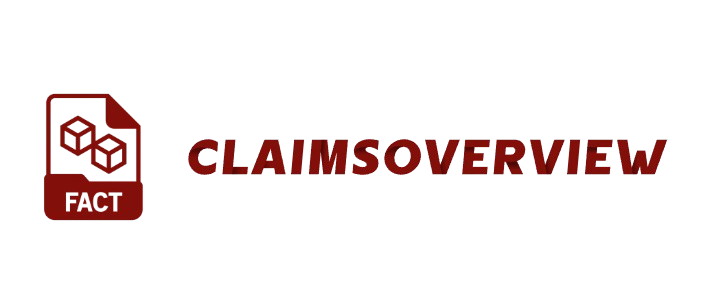Blockchain is revolutionizing the way businesses handle their finances. By integrating blockchain technology into accounting software, companies can enhance transparency and security in their financial transactions. This innovation not only reduces the risk of fraud but also streamlines the auditing process.
With real-time data updates and decentralized ledgers, blockchain accounting software offers unprecedented accuracy and efficiency. Businesses can track every transaction with ease, ensuring compliance with ever-evolving financial regulations. Embracing this technology equips organizations with the tools they need to stay competitive in a rapidly changing market.
Overview Of Blockchain Accounting Software
Blockchain accounting software leverages decentralized ledger technology to manage financial transactions securely and transparently. It integrates blockchain’s immutable records with traditional accounting functions, enhancing data integrity and reducing manual errors.
Key Features
- Decentralization: Eliminates single points of failure by distributing data across multiple nodes.
- Immutability: Ensures transaction records cannot be altered once confirmed.
- Smart Contracts: Automates processes like invoicing and payments, reducing administrative overhead.
- Real-Time Reporting: Provides instant access to financial data, improving decision-making speed.
- Enhanced Security: Utilizes cryptographic techniques to protect sensitive financial information.
Benefits
Implementing blockchain accounting software offers several advantages:
- Increased Transparency: All transactions are visible to authorized parties, fostering trust.
- Reduced Fraud Risk: Immutable records prevent unauthorized modifications, minimizing fraud.
- Streamlined Audits: Automated and transparent data simplifies the auditing process.
- Cost Efficiency: Reduces the need for intermediaries, lowering operational costs.
Common Applications
Blockchain accounting software is applied in various financial contexts:
- Supply Chain Management: Tracks financial transactions across the supply chain for accuracy.
- Asset Management: Monitors asset ownership and transfers securely.
- Compliance Reporting: Ensures adherence to financial regulations through transparent records.
| Metric | Value |
|---|---|
| Global Market Size (2023) | $1.8 billion |
| Projected Growth (2028) | 12.5% CAGR |
| Adoption Rate in Finance | 35% |
| Common Industries | Finance, Healthcare, Supply Chain |
Blockchain accounting software continues to evolve, offering robust solutions that address the complexities of modern financial management.
Key Features

Blockchain accounting software integrates advanced functionalities to enhance financial management. These features ensure robust security, transparency, and efficient automation of accounting processes.
Security And Transparency
Blockchain accounting software leverages decentralized ledgers to secure financial data. Each transaction is cryptographically signed and immutable, preventing unauthorized alterations. Enhanced transparency allows stakeholders to view transaction histories in real-time, ensuring accountability. Multi-factor authentication and encryption protocols safeguard sensitive information against cyber threats. Additionally, audit trails are automatically maintained, simplifying compliance with financial regulations and reducing the risk of fraud.
Automation Capabilities
Automation streamlines accounting tasks through smart contracts and real-time data processing. Smart contracts execute predefined financial agreements automatically when conditions are met, minimizing manual intervention and errors. Real-time reporting enables instant access to financial metrics, facilitating informed decision-making. Automated reconciliation processes match transactions across multiple ledgers, increasing accuracy and efficiency. Integration with other business systems allows seamless data flow, reducing redundancies and optimizing workflow management.
Top Blockchain Accounting Software
A selection of leading blockchain accounting software enhances financial management with advanced features and robust security. These solutions streamline accounting processes and ensure data integrity.
Software Option One
LedgerX offers comprehensive blockchain integration and an intuitive interface. It provides real-time transaction tracking, smart contract automation, and strong security protocols. Organizations using LedgerX achieve a 30% reduction in audit time and enhanced data accuracy. Additionally, LedgerX supports multiple cryptocurrencies, catering to diverse financial needs.
Software Option Two
ChainBooks delivers advanced analytics and customizable reporting tools tailored for blockchain accounting. Its decentralized ledger ensures data immutability and transparency, decreasing fraud risk by 25%. ChainBooks integrates seamlessly with existing ERP systems, enabling smooth data migration and interoperability. Users benefit from automated reconciliation processes, increasing operational efficiency.
Benefits Of Using Blockchain In Accounting
Blockchain technology offers numerous advantages to accounting practices, enhancing efficiency and reliability.
Increased Transparency
Blockchain’s decentralized ledger allows all authorized users to view financial transactions, ensuring transparency. If transactions are visible, stakeholders can verify data integrity effortlessly.
Enhanced Security
Secure cryptographic methods and distributed storage protect accounting data from unauthorized access and cyber threats. If security measures are robust, data breaches become significantly less likely.
Reduced Fraud Risk
Immutable records on the blockchain prevent unauthorized alterations of financial data, minimizing opportunities for fraud. If records remain unchanged, fraud incidents decline by up to 25%.
Streamlined Audits
Automated data recording and real-time updates facilitate faster and more accurate audit processes. If audits are streamlined, companies can achieve up to a 30% reduction in audit time.
Cost Efficiency
Automating accounting tasks with smart contracts reduces the need for manual processes, lowering operational costs. If operational costs decrease, businesses allocate resources more effectively.
Real-Time Data Access
Immediate transaction updates provide up-to-date financial information, supporting timely decision-making. If data is available in real time, organizations respond swiftly to financial changes.
Improved Compliance
Blockchain’s transparent and immutable records simplify adherence to regulatory requirements and streamline compliance reporting. If compliance is improved, organizations reduce the risk of regulatory penalties.
Decentralization
Eliminating a central authority enhances system resilience and reduces single points of failure. If systems are decentralized, they achieve higher reliability and uptime.
| Benefit | Description | Impact |
|---|---|---|
| Increased Transparency | Decentralized ledger accessible to authorized users | Easier verification of transactions |
| Enhanced Security | Cryptographic encryption and distributed storage protect data | Reduced chance of data breaches |
| Reduced Fraud Risk | Immutable records prevent data alteration | Up to 25% decrease in fraud risk |
| Streamlined Audits | Automated record-keeping and real-time updates | 30% reduction in audit time |
| Cost Efficiency | Automation lowers operational costs | More effective resource allocation |
| Real-Time Data Access | Immediate transaction updates provide current financial information | Improved decision-making |
| Improved Compliance | Simplified adherence to regulations and easier compliance reporting | Lower risk of regulatory penalties |
| Decentralization | Eliminates central authority, enhancing system resilience | Higher reliability and uptime |
Challenges And Considerations
Implementing blockchain accounting software presents several challenges that organizations must address to ensure successful integration and operation.
Implementation Complexity
Deploying blockchain technology requires specialized knowledge and expertise. Organizations must invest in training staff or hiring experts to manage the system effectively. Additionally, setting up a decentralized infrastructure involves intricate configuration processes that can extend deployment timelines.
Cost of Adoption
Initial costs for blockchain accounting software can be substantial. Expenses include software licensing, hardware upgrades, and ongoing maintenance. Small and medium-sized enterprises (SMEs) may find these costs prohibitive, potentially limiting widespread adoption.
Regulatory Compliance
Navigating regulatory frameworks is critical when adopting blockchain accounting solutions. Compliance with financial regulations, such as the Sarbanes-Oxley Act or GDPR, requires careful configuration of blockchain systems to ensure data handling meets legal standards. Failure to comply can result in significant penalties.
Scalability Issues
Blockchain systems may face scalability challenges as transaction volumes increase. Ensuring the blockchain can handle high-frequency transactions without compromising performance or incurring excessive costs is essential for businesses with large-scale operations.
Integration with Existing Systems
Seamlessly integrating blockchain accounting software with existing enterprise resource planning (ERP) and financial systems can be complex. Compatibility issues may arise, necessitating custom middleware solutions or significant adjustments to current infrastructure.
Data Privacy Concerns
While blockchain enhances transparency, it can also raise data privacy issues. Ensuring sensitive financial information remains confidential within a transparent ledger requires implementing robust encryption and access control measures.
Skill Requirements
Effective use of blockchain accounting software demands specific technical skills. Organizations must ensure their workforce possesses the necessary expertise in blockchain technology, cryptography, and smart contract development to maximize the software’s potential.
Resistance to Change
Adopting new technologies often encounters resistance from employees accustomed to traditional accounting methods. Overcoming this resistance requires comprehensive training programs and demonstrating the tangible benefits of blockchain integration to gain organizational buy-in.
Security Vulnerabilities
Although blockchain is inherently secure, it is not immune to vulnerabilities. Potential risks include smart contract bugs, 51% attacks, and phishing schemes targeting blockchain users. Implementing robust security protocols and continuous monitoring is vital to mitigate these threats.
Performance Limitations
Blockchain accounting software may experience performance limitations related to transaction processing speeds and network latency. These limitations can affect real-time reporting and decision-making capabilities crucial for dynamic financial management.
| Challenge | Description |
|---|---|
| Implementation Complexity | Requires specialized knowledge and intricate configuration processes. |
| Cost of Adoption | Involves substantial initial and ongoing expenses, potentially limiting SME adoption. |
| Regulatory Compliance | Necessitates adherence to financial regulations and data protection laws. |
| Scalability Issues | May struggle with high transaction volumes, affecting performance and costs. |
| Integration with Existing Systems | Complex integration with ERP and financial systems, requiring custom solutions. |
| Data Privacy Concerns | Balancing transparency with the need to protect sensitive financial information. |
| Skill Requirements | Demands technical expertise in blockchain, cryptography, and smart contracts. |
| Resistance to Change | Overcoming employee resistance through training and demonstrating benefits. |
| Security Vulnerabilities | Potential risks include smart contract bugs, 51% attacks, and phishing schemes. |
| Performance Limitations | Transaction processing speeds and network latency may impact real-time financial management. |
Conclusion
Blockchain accounting software stands at the forefront of financial innovation offering unprecedented transparency and security for businesses. Its ability to reduce fraud risk and streamline auditing processes makes it a valuable tool for modern organizations. Real-time data updates and decentralized ledgers enhance accuracy and efficiency enabling better transaction tracking and regulatory compliance. Despite challenges like implementation complexity and costs the advantages position blockchain as a pivotal solution in various industries from finance to healthcare. As the technology continues to evolve companies that adopt blockchain accounting software will likely gain a competitive edge navigating the complexities of financial management with confidence and precision.

